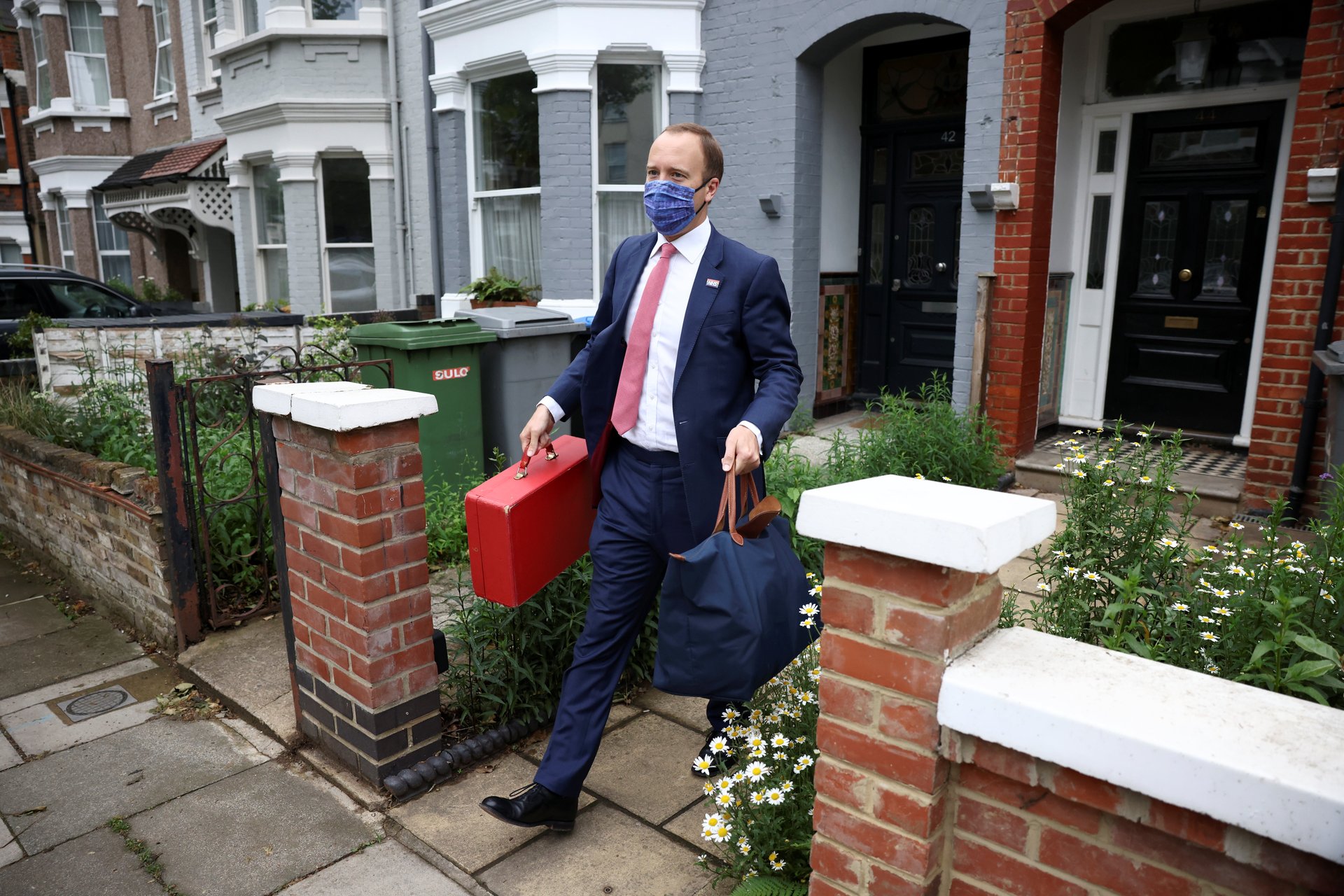The former UK health secretary will no longer lead Africa’s Covid recovery
Matt Hancock, the former UK health secretary who was ousted earlier this year after an affair with an aide, has lost another big job.


Matt Hancock, the former UK health secretary who was ousted earlier this year after an affair with an aide, has lost another big job.
Hancock had controversially been made the United Nations (UN) special envoy for Covid recovery in Africa, but the international body said on Friday (Oct. 16) the appointment “is not being taken forward.”
He had said he was “honored” to accept the role, which came just a day after a damning report published on Oct. 12 revealed how errors and delays by the UK government and scientific advisers contributed to the loss of more than 160,000 lives in the country throughout the pandemic.
The appointment had drawn swift and scathing comment, with critics pointing out Hancock’s failings as UK health secretary, as well as the UN’s failure to appoint an African to the role.
Whoever does come in will have to deal the fact that less than 5% of the African population is fully vaccinated, and the bleak predictions that have been made about the continent’s economic growth.
Hancock was found to have acted unlawfully in the awarding of contracts for personal protective equipment (PPE) in the UK, and had been criticized for his role in the government’s failure to provide equal access to vaccines to poorer nations.
A step backwards
A growing movement to decolonize global health gained traction earlier this year when a leading group of African scientists published an open letter calling on international funders of science and development to make their policies and practices more just and inclusive.
Dr Githinji Gitahi, the global chief executive officer of Amref Health Africa and a board member for the Africa Centres for Disease Control and Prevention told Quartz Africa that Hancock’s appointment was indicative of the “white savior mentality” that persists in global health.
“It is reflected in appointments like this, where a British man is seen to be the savior of Africa’s health and climate change recovery, it is reflected in the nature of technical assistance on health…[and] it is reflected in positions on how money is spent and how resources are allocated,” he said.
Problematic narratives
British academics also criticized the decision to appoint a non-African with no experience of health in Africa to the role. Michael Jennings, a researcher in international development at SOAS, University of London, called it “deeply insulting” to a large number of highly qualified senior officials, politicians, and health officials from Africa.
“The idea that there are no Africans who could take up this role is laughable nonsense,” he said. “The manifest injustice of appointing someone with no experience of Africa, previously in charge of a failed covid response, over someone from Africa, with excellent qualifications and experience, should be surprising. I think it tells us all we need to know about such appointments, and the continuing marginalization of Africa in global politics, policy, and leadership.”
He added that this plays into a narrative that emerged in the first half of 2020 that Africa needed lessons from the global North on how to respond to Covid-19. This theory did not fully materialize and the impact of Covid-19 has been lower in Africa than elsewhere.
Progress interrupted
Hannah Ryder, the CEO of Development Reimagined, a Kenyan-Chinese consultancy, said she was surprised by the appointment, calling it an ‘interruption’ of gains made in the “decolonize global health” movement.
Ryder added that there has been a “groundswell” of African leadership in response to Covid-19, and that she would have liked to have seen an African woman appointed to the role. She gave the example of Malado Kaba, the former minister of economy and finance in Guinea, as somebody with the appropriate experience and leadership.
“Non-Africans can absolutely help,” she said. “But I think there’s no need for that kind of elevation of their position.”
Sign up to the Quartz Africa Weekly Brief here for news and analysis on African business, tech, and innovation in your inbox.